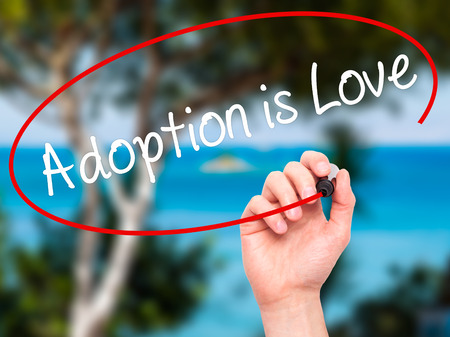Speaking About Adoption
Speaking about adoption and the words we use when talking about adoption will directly influence the thinking and the language used by our neighbors, friends, and family. It will also have a powerful effect on the way our children feel about their adoption story. If we are constantly sharing that they were “given up” by their “real parents,” how will they feel about their adoption stories? Rather, we should say that they were placed into our homes by their birth parents. Adoption is all about love and we need to share that love, and our love for adoption.
Appropriate adoption language when speaking about adoption can stop the spread of misconceptions. By using accurate adoption language, we educate others about adoption. We speak and write in appropriate adoption language with the hopes of impacting others so that this language will someday become the norm.

When speaking about adoption, choose the following, appropriate adoption language. This will help to accurately reflect the true nature of adoption. After all, adoption is love.
Less-Appropriate Language | Appropriate Language | Why? |
|---|---|---|
| Real parent, natural parent | Birth Parent, Biological Parent | Real or natural implies that the adoptive parents are fake or unnatural. |
| Own child, real child, natural child | Birth Child | Real or natural implies the adopted child is fake or unnatural. |
| Adopted child, own child | My Child | There is no need to distinguish between your children by birth and children by adoption. They are all your children. |
| Adoptee/is adopted | My Child Person/Individual who was adopted/was adopted | Being adopted is not a condition, it is an event. |
| Illegitimate | Born to unmarried parents | This is an old term with very negative emotions. Just stay away from it, especially when talking about a human being. |
| Give up, Put up for adoption, Give away | Consent to Adoption, Make an adoption plan, choose adoption | To give up or put up sounds careless, as if the child will be forgotten or handed over without foresight. You give away things, not children. Don’t objectify the child. |
| An unwanted child | Child in need of adoption | No child is unwanted. Stay away from this term when talking about a human. |
| Handicapped child, hard to place | Child who has special needs | Don’t put a label on or define a child by a special need. |
| Keeping your child | Deciding to parent the child | Parenting is a decision that requires commitment and responsibility. A child is not an object to be kept or given away. |
